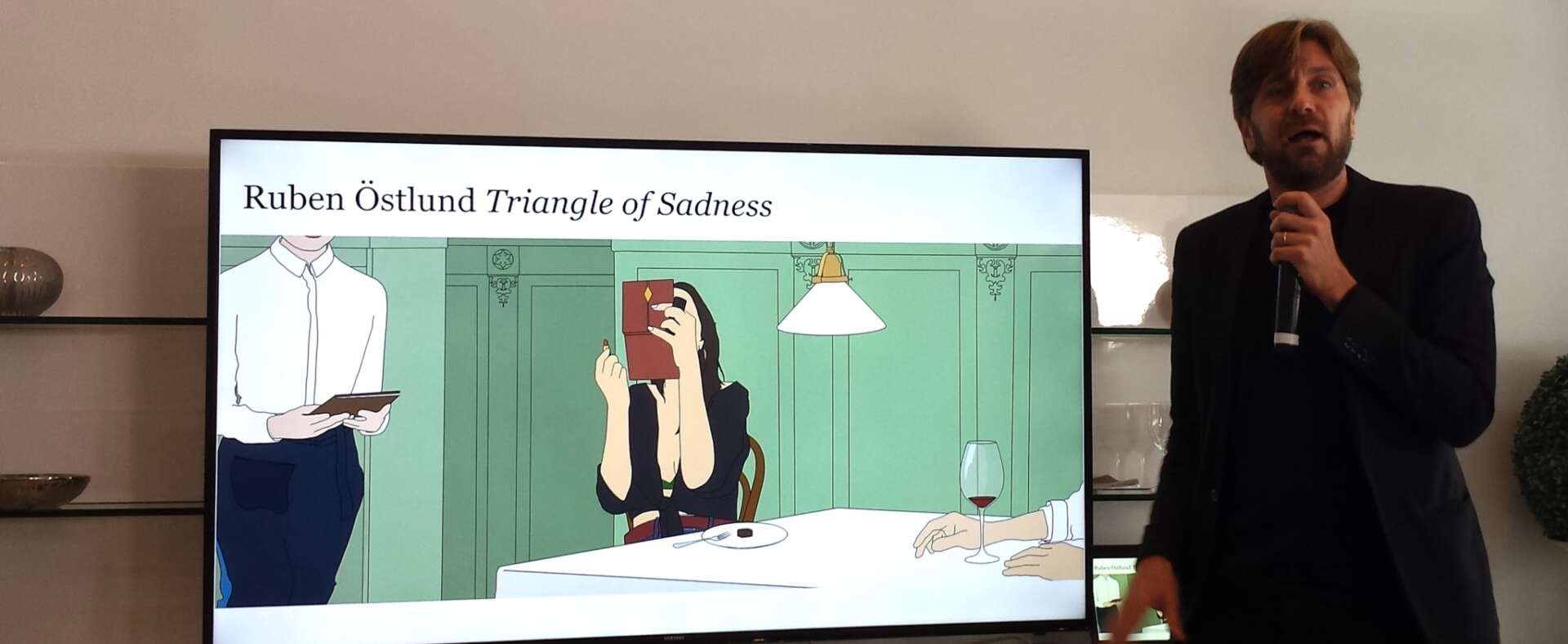WRITTEN BY: Annika Pham
Cannes: The Palme d’or winning director is set to start filming the English-language film Triangle of Sadness in 2020 for a delivery in May 2021.

Cannes: The Palme d’or winning director is set to start filming the English-language film Triangle of Sadness in 2020 for a delivery in May 2021.
Ruben Östlund was the star attraction on Saturday at a press meeting in Cannes hosted by the leading Scandinavian film fund Film i Väst.
The Swedish director’s follow up to The Square, Triangle of Sadness, focusing on a supermodel couple, will be his most ambitious project to date, with an A-list cast and €10m budget.
The satirical drama produced by Plattform Production, will be filmed between Film i Väst’s Trollhättan studios in Western Sweden and on an island. As announced earlier, (CLICK HERE) the director will use the backdrop of the fashion world to tackle his favourite theme of group behaviour and dynamics, while turning social class hierarchy upside down.
Explaining the title to the Film i Väst guests, Östlund said “The triangle is what you have between our eyebrows, when you have problems, and that that models try to hide, filling it with plastic surgery.”
Östlund said he first had the idea for the film five years ago, when his wife, a fashion photographer, told him striking stories about the fashion industry, where young models ‘use their beauty as a currency to climb in society’. The main characters in the story - a young male and a female model, hoping to find an exit to their declining careers, accept to do a cruise for the super rich, on a yacht headed by a Marxist captain. A key scene in the film will feature a stormy night where ‘people will be throwing up everywhere, on their dinner jackets, silk dresses, in the corridors, in the cabins’.
A special set - 20m long and 10m wide - will be built at Trollhättan featuring the rocking dining room and furniture. “It will be the wildest scene in history,” said Östlund.
As the passengers end up shipwrecked on an island, a Filipino cleaning lady who had been cleaning the mess from the super rich, eventually gets the upper hand as she is the only practical person knowing how to fish and make a fire. “I want to reflect on how economy has an influence on our behaviour,” concluded Östlund.
Three questions to Ruben Östlund:
Triangle of Sadness will be your most ambitious project ever, yet you will stay truthful to your roots as an auteur, anxious to deliver food for thought. How do you do to reconcile art and commerce?
R.Ö: I’m happy that my films have sold so many tickets. Not so many arthouse directors have been able to do this. But for me, there is no contradiction between doing something entertaining and personal. The content is the most important and I want to continue that way. When on a plane, what do you want to see? Something entertaining. I think it’s important to understand that there is competition for people’s attention. You have to win that competition if you want your content to reach the biggest possible audience.
This film seems to have a crucial scene that will challenge the audience both cinematically and emotionally, like in Force Majeure, and The Square…
R. Ö: Well when you want the audience to go to the cinema, you want them to experience something exceptional that will surprise them. I guess the people who have built a relationship with my work as a director are curious to see what will come next, what kind of rollercoaster I have prepared for them. For me, it’s about creating a relationship with the audience and the kind of film experience I’d love to have myself.
Would you consider making a film for Netflix, like Alfonso Cuarón's Roma, at the risk of depriving the audience of a proper cinema experience?
R.Ö: I think Alfonso answered in a smart way about his collaboration with Netflix: he said “I want to reach a larger audience with the film”. But I’m a bit afraid of the gradual dominance of the large US digital players on scripted content and the risk of narrowing down the large spectrum of movies being made. It’s like removing a big way of looking at us as human beings. We have to be careful about it. Even the media tend to provide a narrower point of view. When you watch the news, it is often connected to one protagonist and one antagonist.
When it comes to consuming films on Netflix or in the cinema, I would say the most important aspect of watching a film is the common experience that allows people to discuss the content on a larger scale. When you watch a film on Netflix, you often watch it alone and don’t verbalise the content in an intellectual way, it’s simply not the same thing. In Sweden for instance, among the few things that people watch together is the Eurovision song context. That’s perhaps one of the few occasions where people still gather in front of the TV.